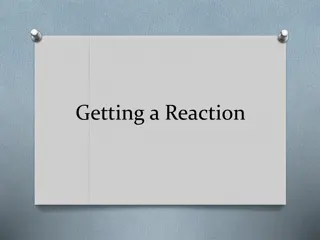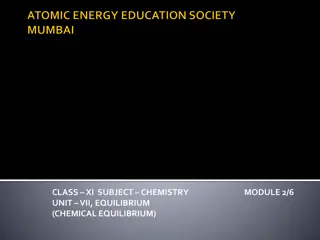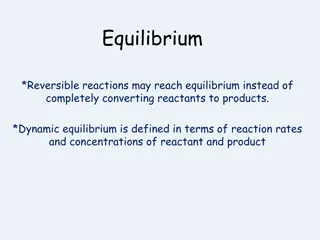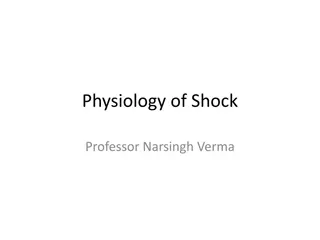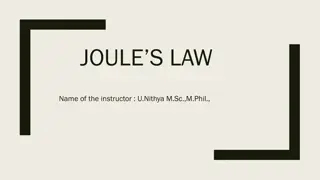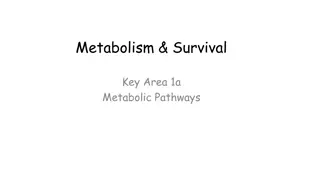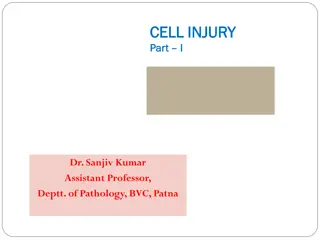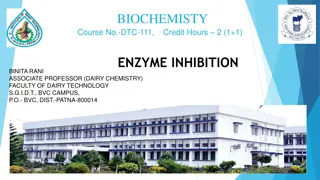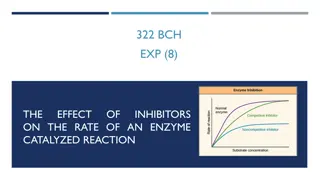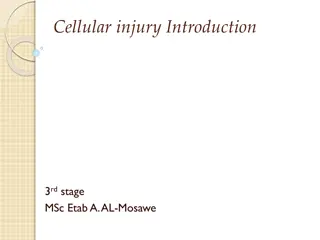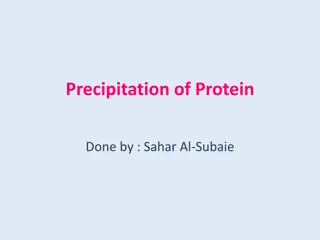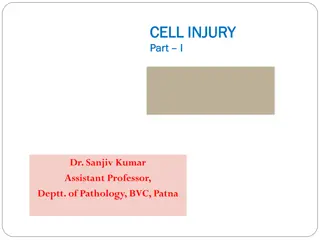Understanding Reversible and Irreversible Changes in Science
Explore the differences between reversible and irreversible changes through a crystal experiment and vocabulary development. Discover examples of reversible changes like dissolving and test various materials for solubility. Engage in designing a presentation to illustrate the contrast between reversible and irreversible alterations.
Download Presentation

Please find below an Image/Link to download the presentation.
The content on the website is provided AS IS for your information and personal use only. It may not be sold, licensed, or shared on other websites without obtaining consent from the author. Download presentation by click this link. If you encounter any issues during the download, it is possible that the publisher has removed the file from their server.
E N D
Presentation Transcript
We are being scientists Science day 2 WALT investigate what is the difference between reversible and irreversible change?
Look at your crystal experiment. What differences do you notice in the growth of the crystals from yesterday? Write them down. Can you see any crystals forming yet? If so, what shape and size are they? Record your observations. Photograph them if you can.
Our question which we are investigating today... What is the difference between reversible and irreversible change? Your task today: To design and create a poster or other presentation to show the difference between reversible and irreversible change.
KEY VOCABULARY Make sure you can define these words by the end of today s session. Reversible, irreversible, solid, liquid, gas, states of matter, change, substance Use the following slides to develop your understanding of these scientific terms
What is a reversible change? A change that can be undone or reversed. Boiling water Ice cubes melting Melting butter Solution of sugar and water They can be changed back again.
I know that dissolving is a reversible change. The substance that dissolves the other substance. Substance that is being dissolved by another substance. When a solid (solute) dissolves in the liquid (solvent), a solution is formed. A type of mixture where one substance is dissolved into another. But the salt can be recovered from the salty water by boiling off the water. When salt is mixed with water it disappears because it dissolves in the water to make salty water. Reversible Changes Examples Dissolving
Does it dissolve? Test the following materials to see if they dissolve in water. You could record your findings in the table below. Using what you ve found out, can you group the materials you tested? DOES IT DISSOLVE? MATERIAL sand N Insoluble Soluble sugar Y sugar sand chalk N gravy granules chalk flour N coffee granules flour rice rice N Y gravy granules Y coffee granules
What happens to the sugar in a cup of tea? When you mix the sugar into the tea and stir, it dissolves so you can't see it. sugar tea Where does the sugar go? The evidence for it still being there is to taste it, the tea tastes sweet. Tea solution
What will happen to the weight of the water when sugar is dissolved? Record changes in weight when sugar is added to water and stirred to dissolve. The The same number of particle are present before and after dissolving. NOTHING DISAPPEARS! sugar resulting solution has the same weight as the sugar and water separately. tea
How can you reverse dissolving? Pour small amounts of salty water onto a saucers and leave to evaporate. Observe the changes over time. If you leave the salt solution in a dry place you will end up with salt again. This is a reversible change
Follow this lesson from the BBC. https://www.bbc.co.uk/bitesize/articles/z4vc86f This lesson link is for you to revise states of matter from year 4 if you need to. There is also a pack you can download from the blog to help you if you need it. https://www.bbc.co.uk/bitesize/articles/zvxthbk
What is the difference between reversible and irreversible change? Your task today: To design and create a poster or other presentation to show the difference between reversible and irreversible change. Remember to use the key vocabulary to as a scientist would we are being scientists after all!





